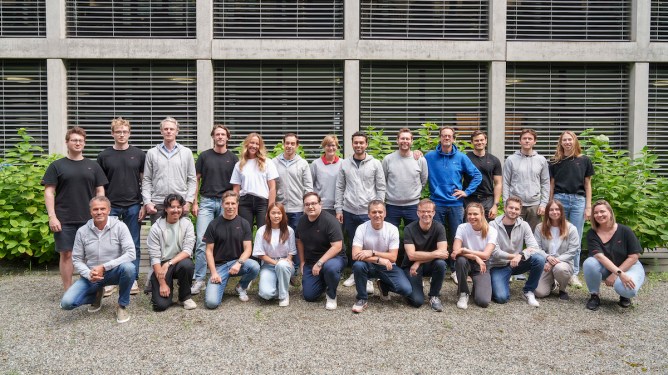The venture capital (VC) industry has faced significant challenges in recent years, with many funds failing to return money to their investors. However, one notable exception is Swiss VC firm Redalpine, which has announced its seventh early-stage fund, Redalpine Capital VII (RAC VII), with a substantial $200 million commitment from its limited partners.
Redalpine’s Success Story: Consistent Top Quartile Returns
Redalpine’s impressive track record of consistent top quartile returns is largely responsible for the oversubscription of RAC VII. With over $1 billion in assets under management across its evergreen Summit Fund and early-stage vehicles, the firm has built a large network of limited partners who are willing to double down on Redalpine’s investment thesis.
"We have recently calculated that over all of our seven funds, with very old and very young vintages, average net return over the last 10 years was around 25% per annum," said Michael Sidler, founding partner at Redalpine. This exceptional performance is a testament to the firm’s ability to identify and invest in high-growth companies that have the potential to become market leaders.
Redalpine’s Investment Thesis: Focusing on European Deep Tech
Redalpine’s investment thesis is centered around the "continuum of software and science," which refers to the intersection of technology and scientific innovation. This approach aligns with current trends in the VC industry, particularly the growing interest in deep tech investments.
"In today’s parlance, you might call that European deep tech, and it’s the subject of several recent funds from Elaia, First Momentum, or IQ Capital, to name just a few," said Sidler. "Europe’s university spinouts make for coveted deal flow that can lure LPs."
Redalpine’s Unique Advantage: Network and Expertise
Redalpine’s unique advantage lies in its dense network of connections with universities and the scientific community across Europe. The firm has built relationships with scientists, entrepreneurs, and investors who share a deep understanding of the intersection of technology and science.
"Having these very dense networks with all of the universities and with the scientific community, and having all of these people with scientific backgrounds in physics, in medicine, in material science and biotechnology, that is a unique advantage for now, and to build it up takes a lot of time," said Sidler. "These people who have experience as an entrepreneur, as an investor, and as a scientist, that’s an extremely rare breed."
Sector-Agnostic Approach: A Buffer Against Market Volatility
Unlike some other VC firms, Redalpine remains sector-agnostic in its investment approach. This breadth of focus enables the firm to identify opportunities across multiple industries, providing a buffer against market volatility.
"We invest in companies that have the potential to become leaders in their respective markets," said Sidler. "Our sector-agnostic approach allows us to stay ahead of the curve and adapt to changing market conditions."
RAC VII’s Investment Strategy: Focus on Early-Stage Companies
The RAC VII fund will focus on investing in early-stage companies with high growth potential. The firm’s investment strategy is centered around supporting entrepreneurs who are developing innovative solutions that address pressing societal challenges.
"We look for companies that have a strong team, a clear value proposition, and a scalable business model," said Sidler. "Our goal is to provide the necessary capital and expertise to help these companies achieve their full potential."
Conclusion
Redalpine’s seventh early-stage fund, RAC VII, is a testament to the firm’s commitment to supporting innovative entrepreneurs and investing in high-growth companies that have the potential to become market leaders. With its unique advantage in network and expertise, sector-agnostic approach, and focus on European deep tech, Redalpine is well-positioned to continue its success story in the VC industry.
Related Stories

